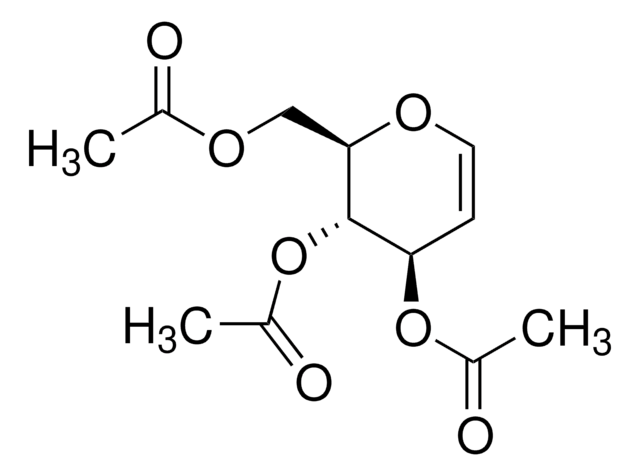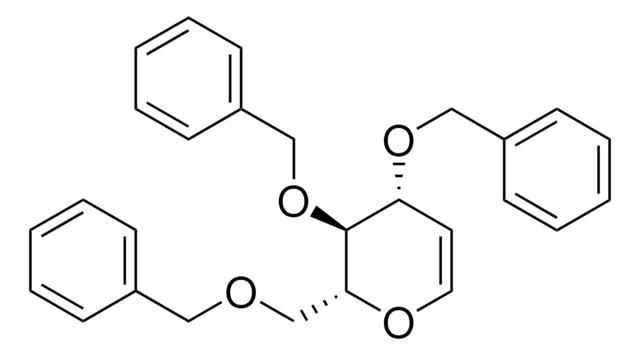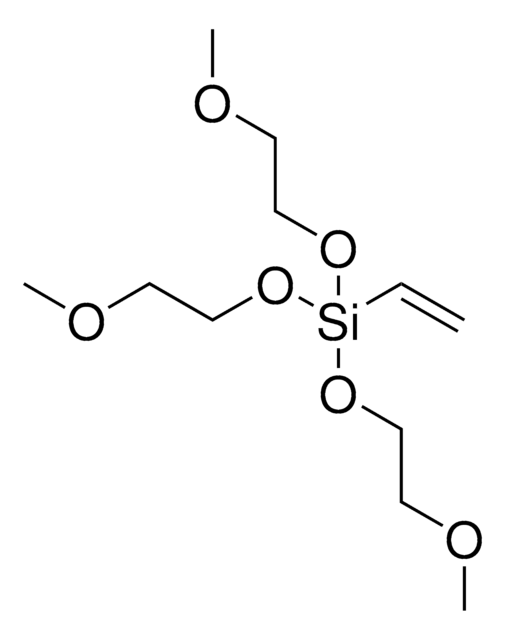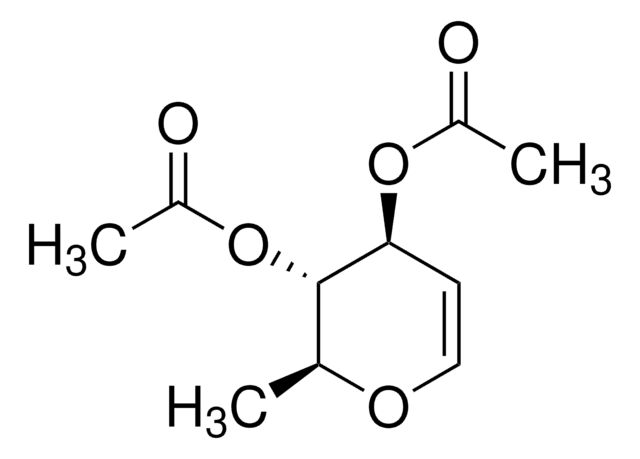464058
D-Glucal
96%
Synonym(s):
1,5-Anhydro-2-deoxy-D-arabino-hex-1-enitol
About This Item
Recommended Products
Assay
96%
form
solid
optical activity
[α]21/D −7°, c = 1.9 in H2O
impurities
<1% methyl alcohol
mp
58-60 °C (lit.)
storage temp.
2-8°C
SMILES string
OC[C@H]1OC=C[C@@H](O)[C@@H]1O
InChI
1S/C6H10O4/c7-3-5-6(9)4(8)1-2-10-5/h1-2,4-9H,3H2/t4-,5-,6+/m1/s1
InChI key
YVECGMZCTULTIS-PBXRRBTRSA-N
Application
Signal Word
Warning
Hazard Statements
Precautionary Statements
Hazard Classifications
Eye Irrit. 2 - Skin Irrit. 2 - STOT SE 3
Target Organs
Respiratory system
Storage Class Code
11 - Combustible Solids
WGK
WGK 3
Flash Point(F)
Not applicable
Flash Point(C)
Not applicable
Certificates of Analysis (COA)
Search for Certificates of Analysis (COA) by entering the products Lot/Batch Number. Lot and Batch Numbers can be found on a product’s label following the words ‘Lot’ or ‘Batch’.
Already Own This Product?
Find documentation for the products that you have recently purchased in the Document Library.
Our team of scientists has experience in all areas of research including Life Science, Material Science, Chemical Synthesis, Chromatography, Analytical and many others.
Contact Technical Service








